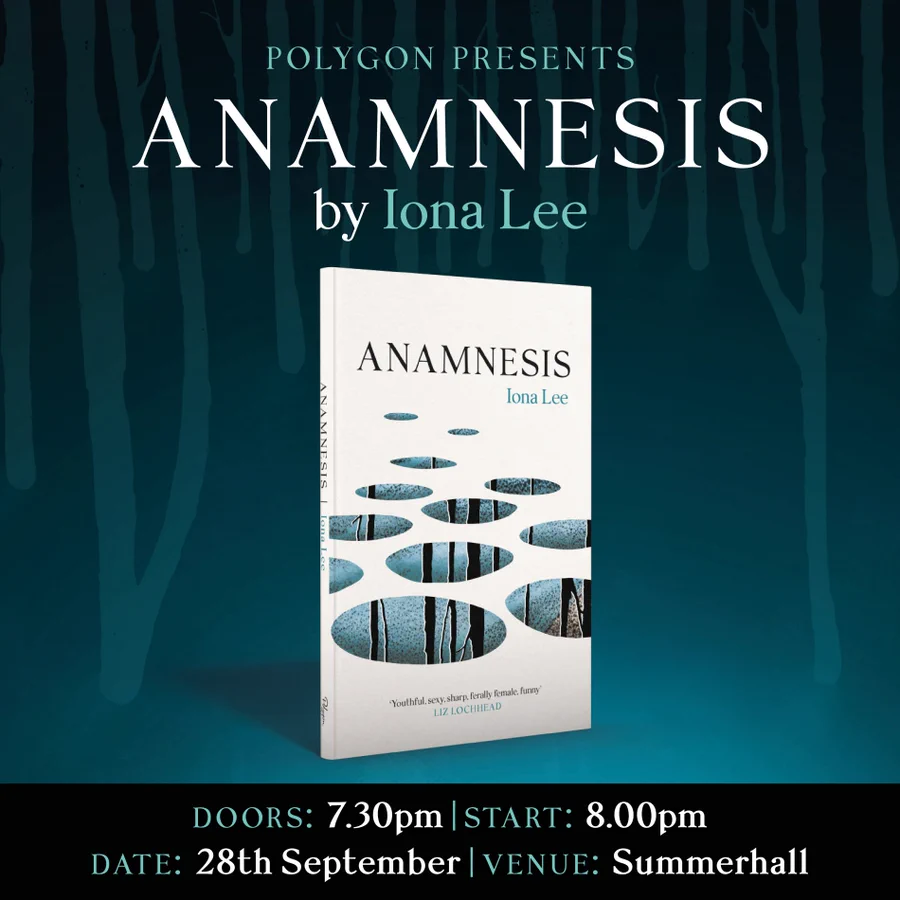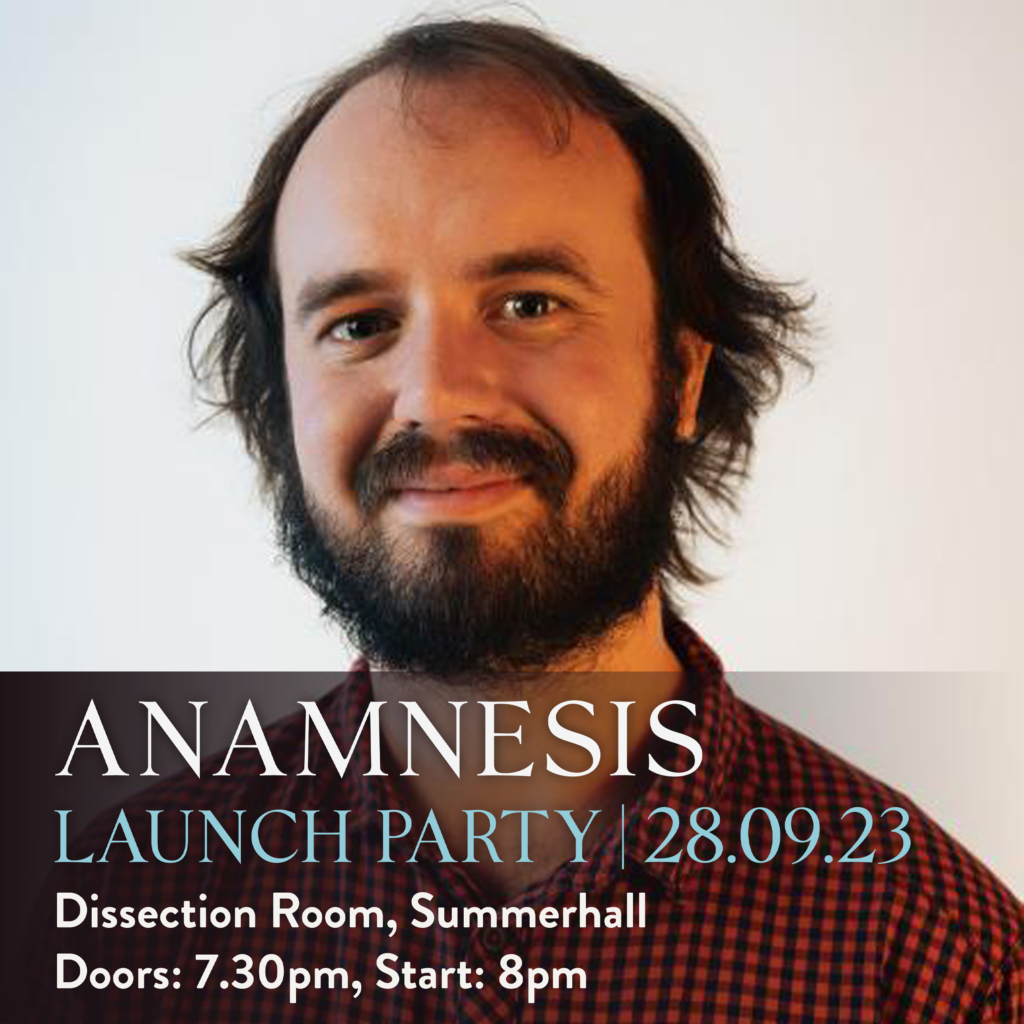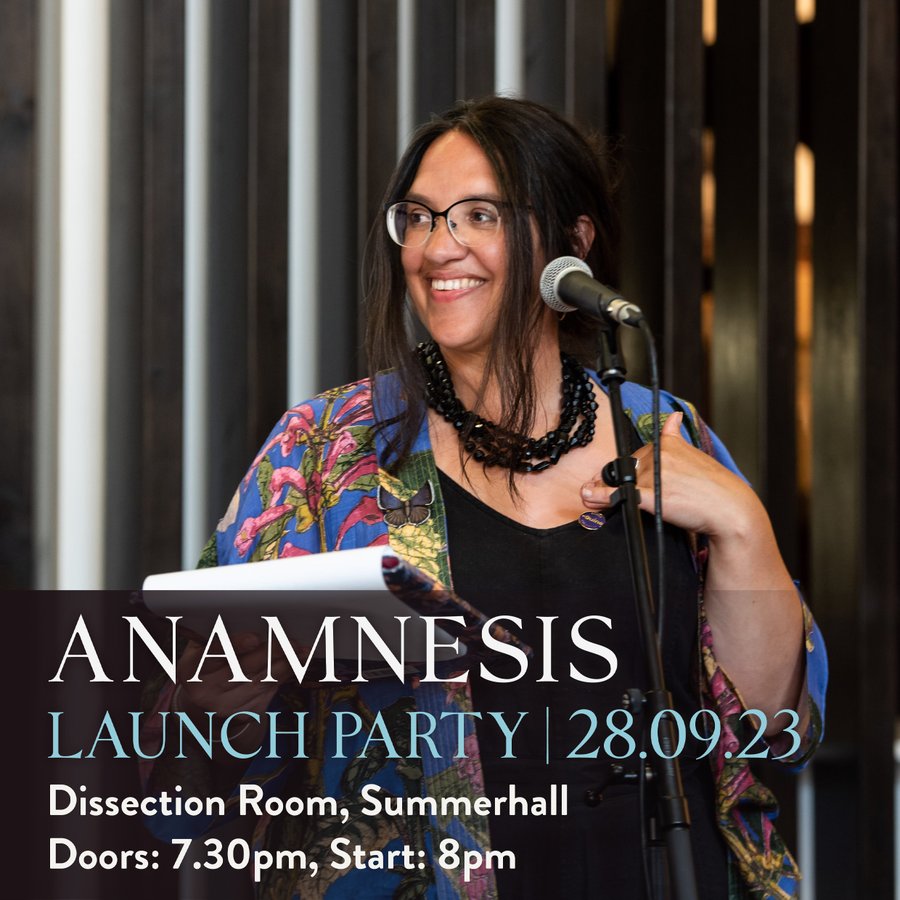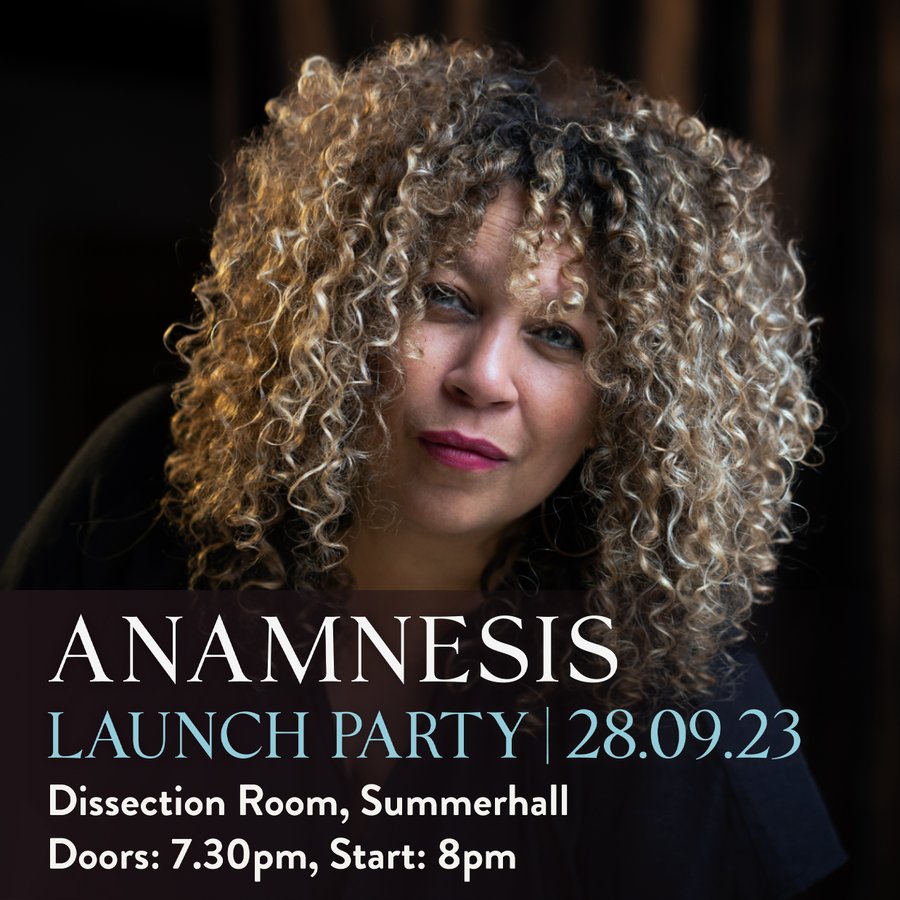Anamnesis by Iona Lee
This is our new series profiling some our vast back-catalogue of writers from the vaults. This week we feature the multi-talented poet, musician, and artist Iona Lee. I spoke to Iona to find out all about her new poetry collection Anamnesis which launches at Summerhall this Thursday (details here).
Anamnesis (noun) – a recalling to mind, reminiscence, recollection, especially of a supposed previous existence.

BC: How does this collection of poetry stand next to your previous work? Is there a development?
Iona: I published my first pamphlet with Polygon a million years ago, in 2018. I struggle to look at it these days without cringing, but that’s probably a good sign.
I went to art school for illustration and I have a masters degree in philosophy. Everything I do feeds into the poetry. I would say that Anamnesis is the synthesis of it all: music, philosophy, art school, the past ten years as a poet, lockdown, growing up. All the thoughts I’ve been thinking. It represents the best I’ve done up until now. There’s some of my ‘greatest hits’ from my life as a performance poet, some more philosophical stuff, some of the pieces that have turned up elsewhere, as songs, for example. There’s also a lot of new stuff as well. I wrote the majority of that book in the last year, which I’m proud of. (Strict deadlines are a godsend).
BC: How does spoken word differ from writing? Is the absence of ‘performance’ liberating?
Iona: I think it’s easier to get away with bad writing when you do “spoken-word”, because you can distract from a lazy rhyme or a clunky turn of phrase by speaking quickly, using unnatural intonation, jazz hands, etc. That is not to say that spoken-word necessarily engenders bad writing, mind you. Far from it! Many of the finest and most exciting writers working in the UK right now have a background in performance poetry. It’s a skill in itself. Its also a lot more inclusive than a lot of so-called “page poetry”, which is so often up its own arse. Just for me, I found that when I started writing more for the page, there was nowhere to hide. I had to relinquish a certain control to the imagined reader. That is intimidating, but also liberating: you don’t need to rely on punchlines – emotional or humorous – you just need to say the thing in the best way possible. It made me a better writer. I had to hold myself accountable.
BC: You experiment a lot with different styles. Very short, longer form, prose poetry, concrete poetry. Is this a sign of not having found your form, or of you just wanting to innovate and try what fits for the individual poem?
Iona: That’s a cheeky question! I’m sure I haven’t ‘found my form’ yet; despite having been doing this for ten years now, I’m still quite young. I’m still playing around and trying things out. I’m not sure if I ever want to ‘find my form’, I think that sounds a little limiting. I like writing songs, poems, articles, essays. One day I’d love to write plays. I have my fingers in many proverbial pies.
BC: Its described as a ‘coming of age’ collection ‘Those days they were heady with drama. On reflection – it was hell’. Are you enjoying being a grown-up?
Iona: Oh you know… it has its merits. What I miss is the romance of youth. Being a teenager and young adult, when it’s all ahead of you – It’s great daydream material. Everything is novel and promise. A flat isn’t just the place where you live, it’s the set on which the exquisite drama that is Your Life can play out. The poem that you quote is a bit of an ode to that time, when technically everything’s terrible – you’ve got no money, your house is a shithole, you’re getting your heart broken on the daily, your friends are self-centred dickheads; you’re so vulnerable, but you’re also so free and resilient and living for fun. I think I need a little re-enchantment; luckily, poetry is pretty good for that. You could argue that I’m not really a grown up, anyway. I’ve been a poet since I was a teenager. I’ve never had a “proper job”. I remain relatively idle, and long may it continue.
BC: You have a dazzling array of poets for the book launch at Summerhall on Thursday. Tell me about them?
Iona: I do, don’t I! I’m very proud of my lineup. There’s been a noticeable drop in the number of poetry nights happening in Scotland since the pandemic, so it’s good to get the gang back together.
Colin Bramwell is a real life genius, and a dear friend. He’s what I would call a “proper poet” (he has a degree and everything) and he was very patient with me in the creation of Anamnesis, reading several drafts and giving me feedback – so I am forever in his debt. His pamphlet, The Highland Citizenship test, has a brilliant balance of humour and gentle, but devastating, insight. Definitely keep an eye out for his debut collection, because it’s going to be intimidatingly incredible.

Hannah Lavery is Edinburgh’s Makar, so basically the crowned queen of the capital’s poetry. I first met Hannah at a gig in Bongo club when I was about 20. I remember, she had to go on directly after someone who had stripped naked on the stage. She handled it with admirable dignity. Those early poetry gigs – they were wild, wonderful, and often quite uncomfortable. It’s been amazing to observe Hannah’s meteoric rise over the years.

Salena Godden has been my friend and mentor since the very beginning. I literally met her at my first ever poetry gig, when I was 17 years old. In many ways, this is all her fault. I call her my mentor, though our relationship has never been that of teacher and student, more of drinking buddies. She showed me the life of a poet and offered me something to aspire to. This year marks ten years since I decided that being a poet seemed like a good time, and ten years since Salena and I met – so I’m thrilled that she is coming up from London. She’s a real living legend of the scene, and not one to miss.


So is poetry everything we’ve expressed which is wrong, toxic, waste? The effluent which awakes in us the requirement for sanitation? The advert-embosssed wrappings that chokes non-human life as long as we droolingly nod along to its cadence?
No; poetry is playing with language in ways that we find aesthetically pleasing. The value of poetry lies in its own sensuality, not in its use as prose to communicate meaning or express sentiment, or to distract or entertain, or whatever. Poetry is its own end; it has no other purpose; it’s not discursive or useful in any other way.
If you don’t ‘get it’, SD, then poetry’s maybe just not for you. Perhaps you should seek your enjoyment elsewhere.